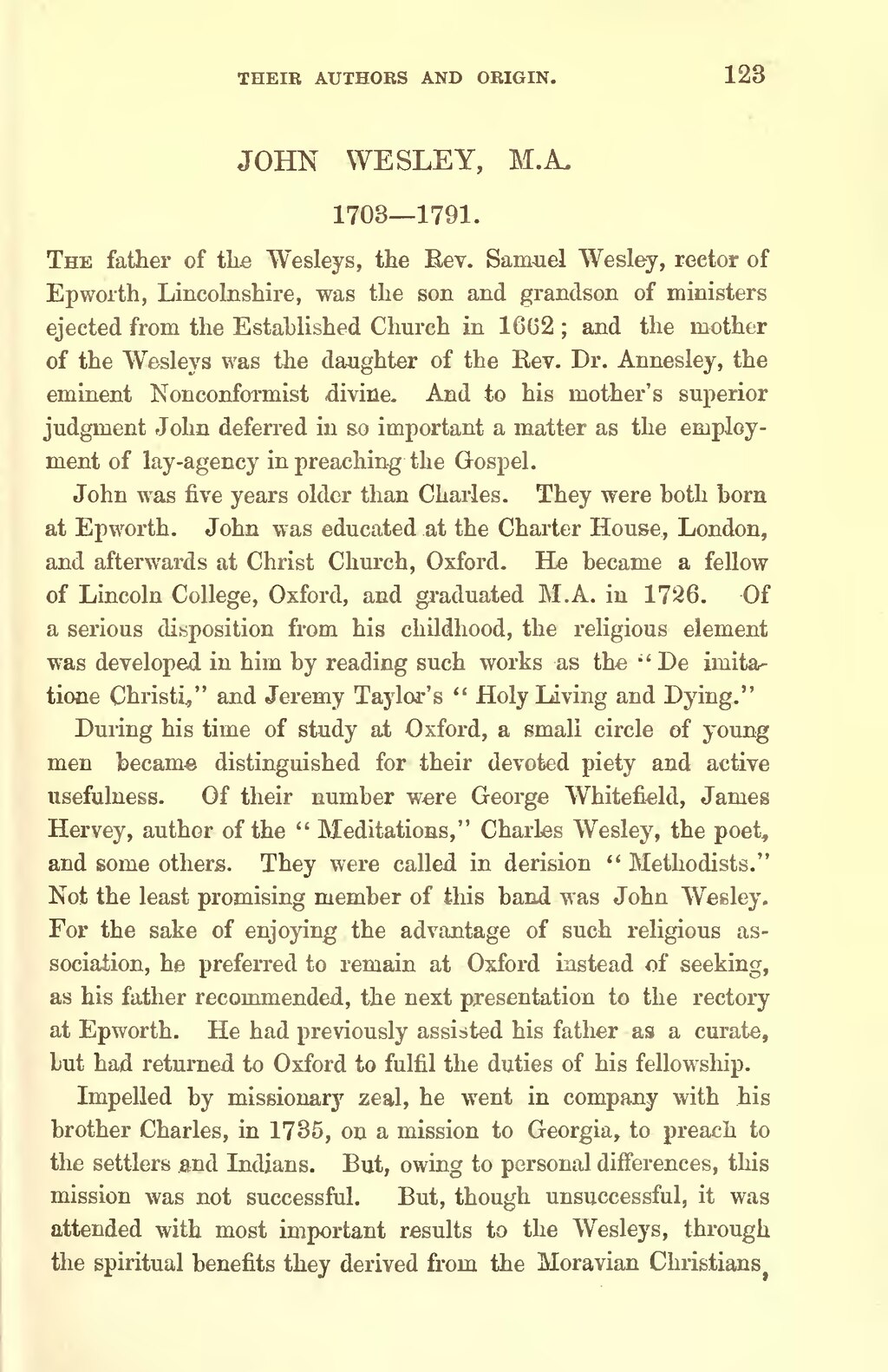THEIR AUTHORS AND ORIGIN. 123
JOHN WESLEY, M.A.
17031791.
THE father of tlxe Wesleys, the Kev. Samuel Wesley, rector of Epworth, Lincolnshire, was the son and grandson of ministers ejected from the Established Church in 1602 ; and the mother of the Wesleys was the daughter of the Rev. Dr. Annesley, the eminent Nonconformist divine. And to his mother s superior judgment John deferred in so important a matter as the employ ment of lay-agency in preaching the Gospel.
John was five years older than Charles. They were both born at Epworth. John was educated at the Charter House, London, and afterwards at Christ Church, Oxford. He became a fellow of Lincoln College, Oxford, and graduated M.A. in 1726. Of a serious disposition from his childhood, the religious element was developed in him by reading such works as the De iruita- tioce Christi.," and Jeremy Taylor s " Holy Living and Dying,"
During his time of study at Oxford, a small circle of young men became distinguished for their devoted piety and active usefulness. Of their number were George Whitefield, James Hervey, author of the " Meditations," Charles Wesley, the poet, and some others. They were called in derision " Methodists." Not the least promising member of this band was John Wesley. For the sake of enjoying the advantage of such religious as sociation, he preferred to remain at Oxford instead of seeking, as his father recommended, the next presentation to the rectory at Epworth. He had previously assisted his father as a curate, but had returned to Oxford to fulfil the duties of his fellowship.
Impelled by missionary zeal, he went in company with his brother Charles, in 1735, on a mission to Georgia, to preach to the settlers and Indians. But, owing to personal differences, this mission was not successful. But, though unsuccessful, it was attended with most important results to the Wesleys, through the spiritual benefits they derived from the Moravian Christians^
�� �
